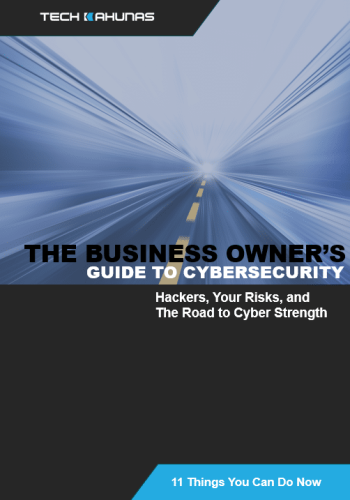Maneuvering the biotech sector's cybersecurity challenges demands a sophisticated approach from seed funding to IPO. Early-stage research must prioritize robust cybersecurity practices to protect proprietary data and intellectual property from sophisticated threats. Risk assessments are essential to identify vulnerabilities and guide strategic investments in advanced security technologies. Compliance with regulatory frameworks safeguards operational integrity, crucial for maintaining investor confidence during an IPO. A rigorous audit and risk management framework reinforces data protection and mitigates market risks. By aligning technical innovation with financial robustness, companies strengthen their competitive edge and boost investor interest, offering deeper insights into the complex biotech cybersecurity landscape.
Key Takeaways
- Implement robust cybersecurity measures to protect sensitive proprietary data from cyber threats during all stages of biotech development.
- Conduct regular risk assessments to identify vulnerabilities and prioritize cybersecurity investments from seed funding to IPO.
- Secure intellectual property with effective patent strategies and trade secret protections against unauthorized access.
- Ensure compliance with regulatory frameworks through systematic audits and risk assessments to enhance operational efficiency.
- Develop a strong cybersecurity posture to protect financial information and build investor trust during the IPO process.
Understanding Biotech Cyber Threats
Invariably, understanding biotech cyber threats necessitates an extensive analysis of the unique vulnerabilities inherent in the biotechnology sector. This industry, defined by its reliance on cutting-edge research and sensitive proprietary data, faces a distinct cyber threat landscape. The increasing convergence of information technology and biotechnology amplifies exposure to cyber risks.
These threats are not merely hypothetical but are manifested in sophisticated cyber-attacks targeting intellectual property, research data, and personal health information.
The cyber threat landscape in biotechnology is marked by persistent, targeted attacks often orchestrated by cybercriminals, competitors, or even nation-state actors. Such entities aim to exploit vulnerabilities in networks, databases, and communication channels.
The implications of a data breach in this sector can be profound, leading to financial losses, reputational damage, and erosion of competitive advantage. A data breach can disrupt ongoing research, delay product development, and compromise patient safety if personal health data is involved.
A thorough risk assessment is paramount to identify potential entry points for cyber threats. By evaluating these risks, biotech firms can prioritize cybersecurity measures and allocate resources efficiently, thereby safeguarding critical data and ensuring the integrity of their operations in this high-stakes field.
Securing Early-Stage Research
Securing early-stage research demands a thorough approach to fortifying the foundations of biotech innovation. At this critical juncture, the integration of robust cybersecurity measures into the fabric of research operations is crucial.
Employing collaborative tools securely fosters seamless communication across research partnerships, while safeguarding sensitive data. Effective data management strategies must be implemented to guarantee that both proprietary and shared information are protected against unauthorized access and breaches.
A detailed risk assessment is essential to identify vulnerabilities within existing systems and processes. This evaluation should guide the development of tailored security protocols that address specific risks related to early-stage research.
Funding strategies must account for the necessary investment in advanced security technologies and infrastructure, guaranteeing that limited resources are allocated efficiently.
Talent acquisition strategies should emphasize the recruitment of individuals with expertise in both biotech and cybersecurity, facilitating technology integration and enhancing the overall security posture of research teams.
Concurrently, ongoing security training is paramount to cultivate a culture of awareness and vigilance among researchers, equipping them with the knowledge to identify and mitigate potential threats.
Protecting Intellectual Property
Safeguarding intellectual property (IP) within the biotech industry is critical to maintaining competitive advantage and guaranteeing the successful commercialization of innovative solutions. Effective patent strategies and robust trade secret protection are essential components in shielding proprietary technologies. Through thorough risk assessment, companies can identify vulnerabilities and implement measures to safeguard their IP assets.
Incorporating cybersecurity training is pivotal in fortifying defenses against unauthorized access and industrial espionage. Employees should be well-versed in recognizing and mitigating potential threats to guarantee that proprietary information remains secure. A multifaceted approach to IP protection not only involves legal measures but also technological safeguards.
| Strategy | Description |
|---|---|
| Patent Strategies | Developing thorough frameworks for patent filings |
| Trade Secret Protection | Implementing measures to safeguard confidential data |
| Cybersecurity Training | Educating employees on recognizing and responding to risks |
These strategies are underpinned by ongoing risk assessment practices, which involve continually evaluating the threat landscape and adjusting security measures accordingly. By maintaining vigilance, biotech firms can protect their intellectual assets, guaranteeing that innovations are not compromised or unlawfully appropriated. This proactive approach is imperative to secure long-term success and maintain a competitive edge in the rapidly evolving biotech sector.
Navigating Regulatory Compliance
Steering through the complex landscape of regulatory compliance in the biotech industry requires a strategic approach that balances innovation with adherence to legal standards. The burgeoning biotech sector is subject to a myriad of regulatory frameworks that govern everything from research and development to clinical trials and product commercialization. These frameworks are designed to guarantee safety, efficacy, and ethical conduct, thereby necessitating a rigorous understanding and vigilant application in daily operations.
Biotech companies must undertake extensive compliance audits to evaluate and ascertain adherence to applicable regulations. Such audits help identify potential risks, allowing companies to implement corrective actions before they escalate into significant compliance issues. A proactive approach to compliance audits can not only mitigate regulatory risks but also enhance operational efficiency by aligning business processes with regulatory expectations.
Risk assessment plays a critical role in steering through regulatory compliance. By systematically evaluating potential regulatory challenges, biotech firms can prioritize resource allocation to areas with the highest impact on compliance. This analytical approach helps in foreseeing regulatory changes and adapting swiftly, thereby maintaining a competitive edge.
Ultimately, a robust compliance strategy, underpinned by a thorough understanding of regulatory frameworks and diligent execution of compliance audits, is indispensable for sustainable growth in the biotech industry.
Strengthening Data Protection
Recognizing the paramount importance of data protection within the biotech sector necessitates a thorough strategy that integrates robust cybersecurity measures with industry-specific safeguards.
This sector's reliance on sensitive intellectual property and patient data demands a nuanced approach that balances technological advancement with security. Employing advanced data encryption strategies is essential to guarantee that sensitive information remains inaccessible to unauthorized entities.
Encryption should be implemented across all data points, whether at rest or in transit, to minimize the risks associated with cyber breaches.
To fortify defenses, organizations must develop extensive incident response plans. These plans should outline procedures for identifying potential threats, containing breaches, and recovering compromised data. A proactive approach to incident response not only mitigates the impact of cyberattacks but also guarantees regulatory compliance and maintains stakeholder trust.
Key elements to strengthen data protection include:
- Data Encryption Strategies: Utilize advanced algorithms to secure data integrity and confidentiality.
- Incident Response Plans: Establish protocols for efficient threat detection and recovery processes.
- Risk Assessment and Management: Conduct regular assessments to identify vulnerabilities and implement necessary safeguards.
Preparing for Public Offering
Starting on the journey toward a public offering requires meticulous preparation and an extensive understanding of the biotech industry's unique challenges. The path to an Initial Public Offering (IPO) demands a strategic alignment between technical innovation and financial robustness. A critical element is solidifying investor relations, ensuring potential investors are confident in the company's vision, technological capabilities, and market positioning. This involves developing a compelling narrative that highlights the company's strengths, including its intellectual property, competitive advantages, and growth trajectory.
In-depth analytical thinking is required to assess the company's market positioning. This entails evaluating the competitive landscape, identifying target demographics, and understanding regulatory environments. A well-defined market strategy will not only attract investors but also establish a sustainable operational model post-IPO.
Risk assessment is paramount, as the biotech sector is fraught with uncertainties, from regulatory hurdles to technological obsolescence. Companies must demonstrate robust cybersecurity measures to protect sensitive data, thereby mitigating risks that could deter investor interest.
Ultimately, successful preparation for a public offering hinges on balancing innovative potential with strategic foresight, ensuring that the company is well-positioned to thrive in the competitive biotech market.
Frequently Asked Questions
What Role Does Cybersecurity Insurance Play in Biotech Startups?
Cybersecurity insurance is integral to biotech startups, serving as a critical component of their risk management strategy. By implementing a robust cybersecurity policy, startups can mitigate potential losses, ensuring operational resilience and investor confidence through thorough risk assessment.
How Can Biotech Companies Foster a Culture of Cybersecurity Awareness?
To foster cybersecurity awareness, biotech companies should implement thorough employee training, enforce stringent security protocols, and initiate awareness campaigns. Leadership involvement, regular risk assessments, continuous evaluation, clear incident reporting, and adherence to compliance standards are essential.
What Are the Costs Associated With Implementing Strong Cybersecurity Measures in Biotech?
Conducting a cost analysis for implementing robust cybersecurity measures in biotech involves a detailed assessment of infrastructure investments, personnel training, and technology upgrades. Effective cybersecurity budgeting must balance these expenditures against potential risk reduction and data protection benefits.
How Do Biotech Firms Assess the Reputations of Potential Cybersecurity Vendors?
Biotech firms assess cybersecurity vendors by conducting thorough vendor evaluations, focusing on reputation management through reviews, industry certifications, and client testimonials. Analytical thinking and risk assessment guarantee alignment with organizational security needs and regulatory compliance standards.
What Are the Best Practices for Incident Response in Biotech Cybersecurity Breaches?
In biotech cybersecurity breaches, best practices include thorough risk assessment, immediate breach notification, extensive forensic analysis, and response planning. Ensuring employee training, adhering to regulatory compliance, timely incident reporting, and efficient data recovery are essential for effective incident response.



 Get your CPA firm aquainted with new FTC rules.
Get your CPA firm aquainted with new FTC rules. 




